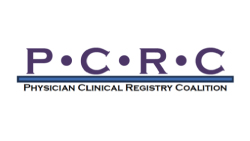 The 21st Century Cures Act made its way through the Senate Wednesday, and the bill did so with a definition of a “clinician-led clinical data registry” that the Physician Clinical Registry Coalition recommended.
The 21st Century Cures Act made its way through the Senate Wednesday, and the bill did so with a definition of a “clinician-led clinical data registry” that the Physician Clinical Registry Coalition recommended.
Principal Rob Portman leads the Powers team that represents the Coalition and works with its 24 medical societies and other physician-led organizations to advocate for policies that enable the development of clinical data registries and enhance their ability to improve quality of care through the analysis and reporting of these outcomes. Read the full press release below or view a PDF version here.
The Physician Clinical Registry Coalition applauds the enactment of the 21st Century Cures Act by Congress with a definition of a “clinician-led clinical data registry” that the Coalition recommended.
In the bill, a clinician-led clinical data registry is defined as a clinical data repository that is led by clinicians and, among other things, is designed to collect detailed, standardized data on medical procedures, services or therapies for particular diseases or conditions; provides feedback to its participating data sources; and meets certain quality standards. This definition is significant because it will provide a common terminology for referring to clinical data registries in federal legislation, regulations, and communications.
“We are pleased that we could play an integral part in the formation of the definition of clinician-led clinical data registries, as this term will be critical to ensuring that data from electronic health records is shared with bona fide clinical data registries that are capable of collecting, securing, and analyzing patient information in a manner that truly promotes quality improvement,” the Coalition wrote in support letters to the House and Senate Leadership.
The Coalition also supports the language in the Information Blocking section of the bill that would require developers of health information technology, as a condition of certification and maintenance of certification, to attest that the developer does not take any action that constitutes information blocking, except for legitimate purposes specified by the Secretary.
In addition, the Coalition also strongly supports the language giving the U.S. Department of Health and Human Services Inspector General jurisdiction to investigate false attestations or actual instances of information blocking and to impose civil monetary penalties in cases where it finds violations.
“These provisions will go a long way toward ensuring such registries can collect the data they need to improve the quality of care and follow-up treatment provided to patients,” the Coalition wrote in the support letter.
The U.S. Senate passed the 21st Century Cures Act on December 7, 2016 with a 94-5 vote. The House of Representatives passed the bill with a 392 to 26 vote on November 30, 2016.
The Physician Clinical Registry Coalition is a group of 24 medical societies and other physician-led organizations that sponsor clinical data registries that collect identifiable patient information for quality improvement and patient safety purposes to help participating providers monitor clinical outcomes among their patients. The Coalition is committed to advocating for policies that enable the development of clinical data registries and enhance their ability to improve quality of care through the analysis and reporting of these outcomes.
For more information on the Coalition or its comments on the 21st Century Cures Act, please contact Rob Portman at (202) 872-6756 or Rob.Portman@powerslaw.com.
- Physician Clinical Registry Coalition Members
- American Academy of Dermatology Association
- American Academy of Neurology
- American Academy of Ophthalmology
- American Academy of Otolaryngology–Head and Neck Surgery
- American Academy of Physical Medicine and Rehabilitation
- American Association of Neurological Surgeons/ NeuroPoint Alliance
- American College of Emergency Physicians
- American College of Gastroenterology/GIQuIC
- American College of Rheumatology
- American College of Surgeons
- American Gastroenterological Association
- American Joint Replacement Registry
- American Society of Anesthesiologists/Anesthesia Quality Institute
- American Society for Gastrointestinal Endoscopy/GIQuIC
- American Society for Radiation Oncology
- American Society of Clinical Oncology
- American Society of Nuclear Cardiology
- American Society of Plastic Surgeons
- American Urological Association
- North American Spine Society
- Society for Vascular Surgery
- Society of Interventional Radiology
- Society of NeuroInterventional Surgery
- The Society of Thoracic Surgeons
